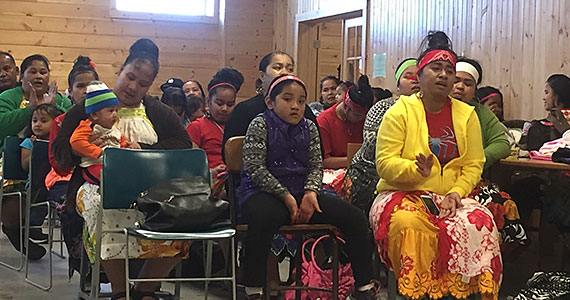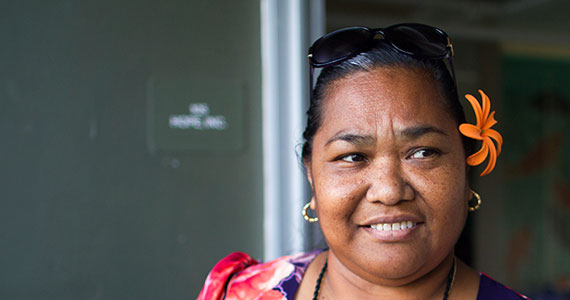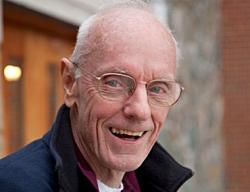Are They Ours or Theirs?
Micronesian migrants are in the news again. No surprise at all, I suppose. They?re always in the news. And they are also very much on my mind.
In mid-January I paid a visit to the Chuukese community living in Milan, Minnesota (a town of 350), whose migrant population has grown from 140 at my visit a year ago to 180 now. After our Sunday mass and baptism, they arranged a little get-together with the obligatory basketball followed by songs, dances and food. But the gathering had to be scheduled early enough so that many of them could make their graveyard work-shift at the local turkey processing plant beginning at 8 PM.
Newcomers like our friends in Milan might not be able to send very much money back home, but they help in other ways?like providing encouragement and support to those from their islands who would like to join them in snowy, bone-chilling Milan.
Is the steady flow of Chuukese into places like Milan good news or bad news?? Some who have chosen to remain in the islands may think of the migrants as people who have deserted their homeland when things became tough. Sometimes political figures in FSM can put their own stamp on this position, as when they state that migrants have made their choice to leave and so should be left to take care of themselves without any help from FSM government. At times, political leaders seem to regard migrants as an embarrassment on the grounds that they bring unwelcome attention upon FSM. There are, of course, abundant stories of people getting tossed into jail, or filing for federal benefits within hours after they have landed. But the real problem for those FSM leaders may be that the very number of people leaving seems to be evidence that the problems back home haven?t been fixed: lack of jobs in a struggling economy, a mediocre educational system, and the absence of the advanced health care that many require.
Perhaps these problems are simply unfixable, at least without divine intervention. That?s what I would say about the state of the FSM economy and the level of health care in the islands. (But I?m not so sure that education can?t be greatly improved, I would have to add.) In any case, shouldn’t FSM residents and those who choose to live abroad be regarded as allies? Even as family?
A few years ago, I saw the migrants mainly as a growing movement that should be studied more closely. So we put together two videos offering a look at some of the people who were moving out and what they hoped to find abroad. A couple of years after that, we did a survey of FSM migration offering more detailed data on this population.
But today this is much more to me than a social movement to study; it has become personal. Nearly every day I find myself chatting on Facebook with people I knew years ago?as Xavier students, or as friends from Chuuk, or Pohnpei, or other places. Usually there are surprises, since persons who I thought were solidly anchored on their islands tell me they are now living in Kansas City or Oregon, or even within striking distance of New York?in Virginia or North Carolina.
What brings them to the US is no surprise (we only have to think back to jobs, education and health care). The challenges they face in their new surroundings are nothing new (different customs, sometimes extreme weather, and always a deep longing for family and friends back home). They struggle to identify with their new residence, but they recognize in their heart that they will always be island people. They have a split identity, I suppose. But so does the FSM due to this migration, and the nation should recognize this.
Let me end with one application of this principle.
What will happen to these people if the new Chuuk independence movement is passed in the next election? Nothing?at least right away, some of the experts tell us. But if the independent status ever goes into effect, with Chuuk opting out of the Compact, then the migrants from Chuuk would no longer have a legal right to remain in the US. Would the US feds chase them out? I don?t know?they seem to have enough problems without taking on this additional burden?but they could if they chose to do so.
So what am I urging here?vote YES or NO on the upcoming referendum on the Chuuk independence question? That?s entirely up to the Chuukese voters. All I?m suggesting here is that the voters do not discount their kin who can?t vote, that they not write off the consequences of their choice on those from their state who have moved abroad. They are members of the same cultural family, after all.



